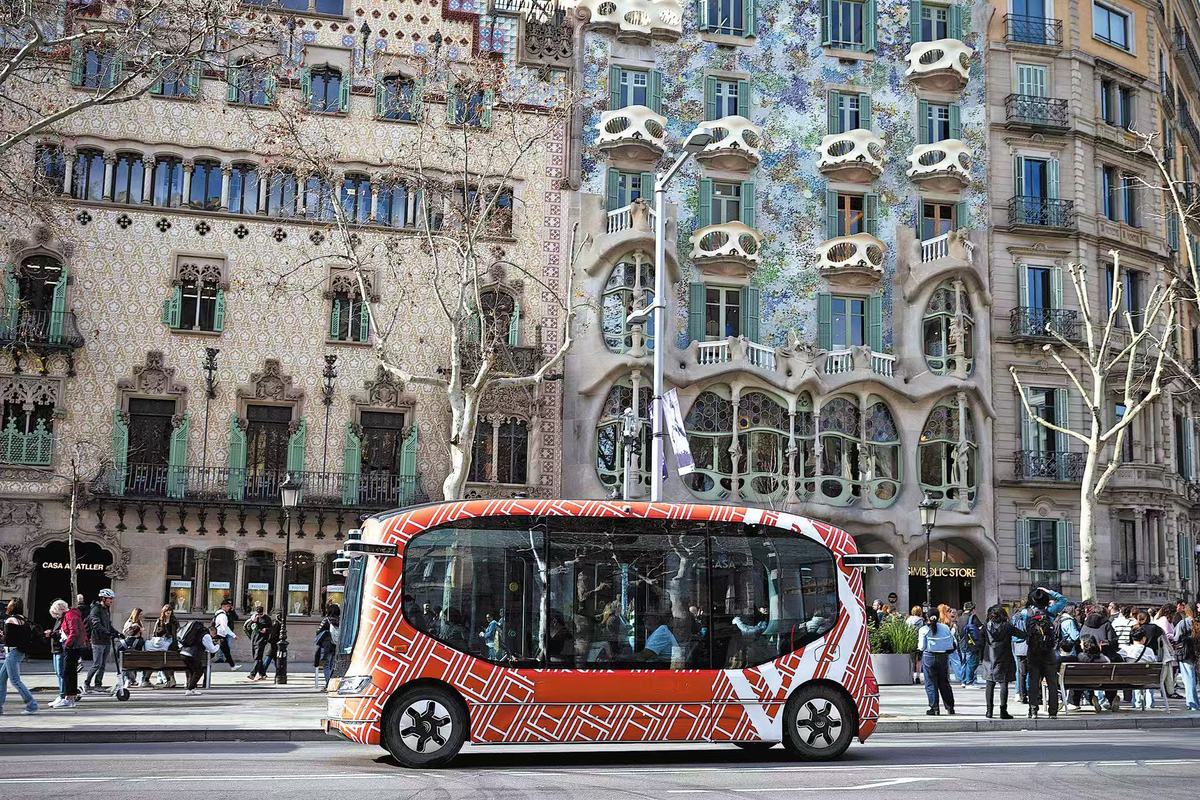Autonomous driving firms revved up on biz growth
Global robotaxi market expected to rise from $400m in 2023 to $45.7b in 2030


Chinese autonomous driving companies are ramping up efforts to make forays into overseas markets and expand the number of robotaxi fleets as part of a broader push to bolster the large-scale commercial application of self-driving vehicles and enhance their competitiveness on the global intelligent automotive landscape.
Experts said the accelerated global expansion of cutting-edge technology will create huge opportunities for urban transport systems, with cities around the world adapting regulations to accommodate autonomous vehicles on public thoroughfares.
They added that Chinese self-driving companies boast relatively abundant experience in diversified road-testing and operational scenarios — from high-density urban centers to suburban areas. Meanwhile, ensuring the safety and stability of robotaxis remains a top priority given the complex traffic conditions and urban environments in different countries.
Data from research firm MarketsandMarkets showed the scale of the global robotaxi market is expected to rise from $400 million in 2023 to $45.7 billion in 2030, at a compound annual growth rate of 91.8 percent during the period.
The consultancy said the growth of the robotaxi market is influenced by rising demand for ride-hailing services, high research and development investment, and government focus on reducing emissions, boosting infrastructure development and spurring the electrification of vehicles.
Robin Li, co-founder and CEO of Chinese tech heavyweight Baidu Inc, said 2025 will be a pivotal year for the growth of its autonomous ride-hailing platform Apollo Go, with plans to expand fleet size and ride volume faster than ever.
Apollo Go has provided more than 11 million rides to the public. Altogether, the service has deployed over 1,000 fully driverless vehicles globally and has expanded its presence to 15 cities.
"Looking ahead, we will deepen our presence in existing markets while strategically entering new ones, capturing broader growth opportunities worldwide," Li said, adding that he sees a clear path to profitability for Apollo Go as costs in hardware and other areas decrease and the growing operational scale results in more efficiency.
The company has stepped up its global expansion pace. It has signed a strategic cooperation agreement with the Roads and Transport Authority of Dubai, the United Arab Emirates, to launch autonomous driving testing and services in the city.
The move marks Apollo Go's first international fleet deployment outside the Chinese mainland and Hong Kong and its first entry into the Middle East. It will deploy 100 fully autonomous vehicles in Dubai by the end of this year, using its sixth-generation robotaxi, with plans to expand the fleet to no fewer than 1,000 by 2028.
All tests and services will be conducted in line with Dubai's local laws and adapted to regional needs. The collaboration aims to integrate autonomous ride-hailing into Dubai's broader transportation ecosystem, offering enhanced mobility services for residents and contributing to the city's intelligent infrastructure goals.
Moreover, it has inked a strategic partnership with Autogo, a UAE-based autonomous mobility solutions company, with the goal of deploying the largest fully driverless fleet in Abu Dhabi, capital of the UAE.
























